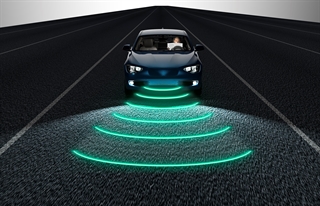
Insurance industry addresses potential changes to state laws to prepare for arrival of autonomous vehicles
Insurance industry addresses potential changes to state laws to prepare for arrival of autonomous vehicles
Authored By
Practices
 Autonomous vehicles hold great promise for increased highway safety and enhanced mobility for all members of society. The gradual shift from traditional vehicles to driverless cars also presents challenges for auto insurers, whose products were developed for traditional vehicles, and which do not easily translate to the autonomous and semi-autonomous realm. As a result, insurers nationwide have begun to lobby state lawmakers regarding potential changes to state law affecting the development and deployment of AV technology.
Autonomous vehicles hold great promise for increased highway safety and enhanced mobility for all members of society. The gradual shift from traditional vehicles to driverless cars also presents challenges for auto insurers, whose products were developed for traditional vehicles, and which do not easily translate to the autonomous and semi-autonomous realm. As a result, insurers nationwide have begun to lobby state lawmakers regarding potential changes to state law affecting the development and deployment of AV technology.
Among the important issues identified by carriers are the following:
State financial responsibility laws
Most, if not all, states currently have financial responsibility laws that require drivers to carry liability insurance in certain, specified amounts. Currently, such laws typically apply to drivers of traditional vehicles. But what if a vehicle does not have a driver? Insurers have taken the position that state financial responsibility laws should be extended to the manufacturer of AVs, or to fleet operators whose services utilize AVs. Since most states already impose financial responsibility laws on fleet operators such as taxi services, commercial vehicles, etc., extending these laws to those responsible for AVs on our roads should be fairly straightforward. Extending financial responsibility laws in this manner is consistent with the purpose of such laws, which is to ensure that motor vehicles are covered for damages that they may cause on our highways.
Access to data involving vehicles and accidents
Perhaps the most important issue identified by insurers relates to the vast amount of data that will be generated by AVs. It is unclear who will “own” this data, but insurers will need access to it, not only to properly understand and underwrite the risk presented by AVs, but also to adjust individual auto accident claims. Indeed, insurers will need to understand which vehicles are equipped with autonomous and semi-autonomous systems, and receive loss history data for those vehicles, to effectively develop and price insurance products. Similarly, when adjusting accident claims, insurers will need something akin to a “statement” from the vehicle, revealing the vehicle’s speed, braking, sensor and other accident data. This information will allow for prompt accident investigation and payment of damage and injury claims.
Support primacy of state regulation of insurance and liability issues
Currently, while motor vehicle safety standards are a matter of federal law, states are primarily responsible for regulating the insurance industry and establishing liability standards for auto accidents. Insurers generally favor continuing this regulatory framework and oppose more stringent federal regulation that might prevent innovation at the state level.
Finally, there has been some speculation that manufacturers of AVs might market and sell insurance along with the vehicle itself. This raises serious concerns for the insurance industry, who in most cases is vastly better equipped to underwrite effective and affordable coverage, and adjust accident claims, than are auto manufacturers.

